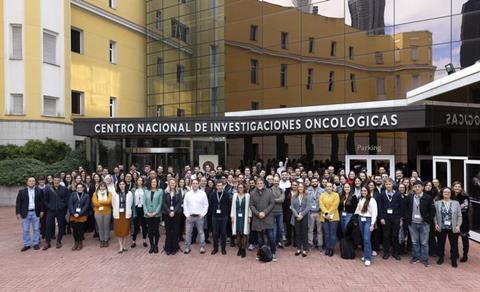The main cause of death from cancer is metastasis, the process that spreads the tumour to other organs and which has still few treatment options.

Research is changing our very concept of metastasis and lead to new ways of fighting it, some of them already in clinical trials, according to world leaders in this area who presented at the CNIO-Caixa Research Frontiers Meeting ‘Metastasis’, held at the Spanish National Cancer Research Center (CNIO).
The first paradigm shift is that metastasis “is a distinct disease, with its own biological mechanisms,” explains Eva González Suárez, head of the CNIO’s Transformation and Metastasis Group and co-organizer of the congress.
Status of metastasis
Metastasis was considered the most advanced stage of an oncological process; but today it appears to be a phenomenon that evolves on its own and starts probably much earlier than previously thought, with a few very specific cells capable of colonizing other organs, as Héctor Peinado, head of the CNIO’s Microenvironment and Metastasis Group and also co-organizer of the congress, points out. Moreover, these metastatic cells might not come from the primary tumour, as assumed so far, but from other metastases.
Researchers spoke about how stress and changes in circadian rhytms influence metastasis, tehe emerging field of cancer neuroscience, strategies to block communication between cancer cells, use of beta-blockers to prevent breast cancer metastasis and the deployment of bacteria against cancer.
Research carried out by Maria Rescigno at Humanitas University in Milan, Italy, focuses on “the interrelation between human body and microbiota – the ecosystem of bacteria, viruses, and fungi that populate organs and tissues – in order to understand its role in disease.”
Intestinal barrier
Rescigno is the recent discoverer of the existence of an intestinal barrier that protects the organism from the entry of external agents while allowing the absorption of nutrients.
Her work has shown that there are bacteria which proliferate especially in the low-oxygen, dead-tissue environment found in tumours, suggesting the possibility of using bacteria deliberately prepared to activate the defensive response against tumours.
Another line of research shows that microorganisms are involved in preparing tissues to host metastatic cells, so preventing this nest preparation for metastasis using drugs would be another possible therapeutic avenue.
González Suárez considers it relevant to highlight the trials Claudia Gravekamp, from Albert Einstein College of Medicine, is carrying out along this line. They involve treatments with bacteria against which we have been vaccinated in our childhood, as a trick to reactivate the immune response.
“We are going to start treating cancer with bacteria,” says congress co-organizer Manuel Valiente.
Topics
- Albert Einstein College of Medicine
- Bacteria
- Cancer Microbiology
- Claudia Gravekamp
- CNIO-Caixa Research Frontiers Meeting ‘Metastasis’
- Eva González Suárez
- Héctor Peinado
- Humanitas University
- Manuel Valiente
- Maria Rescigno
- One Health
- People News
- Research News
- Spanish National Cancer Research Center
- UK & Rest of Europe







No comments yet